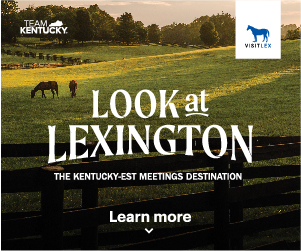
Lydia Bailey Brown was appointed executive director of the Kentucky Arts Council on Dec. 5. She comes to the agency with more than three decades of experience as an arts administrator and business leader, including positions as executive director of The Cultural Alliance in Norfolk, Va.; director of sales and marketing for Chicago Scenic Studios; director of education for the Yorktown Arts Foundation & Galleries in Yorktown, Va.; assistant officer at The Mariners’ Museum in Newport News, Va.; and director of marketing and public relations for the Williamsburg Symphonia in Williamsburg, Va. Bailey Brown also held the development director role of New York-based global business and economic think-tank, The Conference Board.
Bailey Brown discussed her background in the arts and her plans for the state arts agency with Tom Musgrave, arts council communications director.
Tom Musgrave: What motivated you to be an arts administrator?
Lydia Bailey Brown: From a very early age, I planned for my career in the arts. Walking home from ballet class at age 4, I found myself wondering “how am I going to work in dance, visual art, music, theater.” I knew those were the things that were home inside me, but I didn’t know they had the commonality of being “the arts.” I looked at my skills and interests in high school and then college, and recognized I was both left- and right-brained. I had talents in business and a passion for both making and managing art, so it made sense to me when I learned there was such a thing as a career in arts administration.
TM: How does that connection as an artist help you as an administrator?
LBB: I think that I first experience a show or view a piece with the mindset of a peer rather than a manager in the arts. I still identify as an artist too. I feel a kinship to artists and personally understand their concerns and passions for what’s happening in our communities, state and country, as well as in their careers. Some of their challenges have been some of my challenges.
TM: What goals do you have for the Kentucky Arts Council?
LBB: I am an idealist. I do not apologize for having huge goals. I am driven by a sincere passion for the arts in Kentucky, and in that light my overarching goal is that we as an agency become so integral in the operation of the state that we aren’t simply sustained, but that we grow in importance and impact. Specifically, we need to find ways to increase arts education programming, accessibility to diverse audiences and efficient and relevant professional development opportunities for working artists. We also need to increase cultural tourism and better the quality of life for Kentuckians.
To do this, I recognize we need to be creative business developers in our agency, and we’ll have to find new revenue streams alongside our state and federal support. Also, we need to move forward collaboratively with other state agencies to better utilize our resources and talents.
I’m thrilled to be working with such a committed, seasoned staff of arts professionals at the arts council. As we explore what new strategies will be required of us, we are working to determine the best way to utilize the team’s gifts.
TM: What role can business leaders have in the arts?
LBB: The arts community is more than just artists. It’s made up of advocates, patrons, audience members and Kentuckians whose lives are enriched daily by the arts. Employers benefit from attracting creative thinkers and can increase the creative culture of their communities by encouraging employees to participate in the arts. It is imperative to have engaged corporations, municipal leaders and organizations as strong partners in the placement of public art, encouraging arts education in school budgets and helping define the creative cultures of their regions. Business leaders must serve on arts organization boards, commission Kentucky artwork for their workplaces, sponsor arts festivals, performances or events to invigorate the cultural climate of their neighborhoods. Conversely, artists are valuable to business leaders and should be included in service on corporate boards, lending their creative insight to the business environment. Creativity training within the workplace has proven to help companies innovate. In healthy business environments, there’s a synergistic relationship between the arts and business communities. When both are collaborating, all succeed with greater outcome and enjoy the journey more. ■
Tom Musgrave is communications director of the Kentucky Arts Council.




















Add Comment